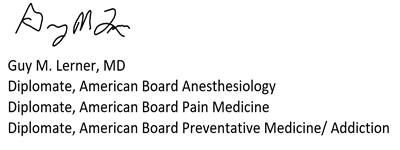3 Things to Tell Your Patients about CBD Oil
April 13, 2020Cannabidiol (CBD) is a naturally occurring compound found in the resinous flower of cannabis, and it is one of more than a hundred cannabinoids found in Cannabis sativa, a plant more well-known colloquially as “marijuana” or hemp. CBD is closely related to tetrahydrocannabinol (THC), which is the psychoactive component of the plant, yet it is safe, non-addictive. Marijuana/ cannabis has been used as a pain reliever for over 5000 years!
So what is the “buzz” all about? CBD is a non-intoxicating component of the cannabis plant thought to have enormous therapeutic POTENTIAL. CBD has been studied in numerous conditions from autoimmune diseases to skin disease to GI disorders, and it may provide relief for chronic pain, anxiety, inflammation, depression and PTSD. CBD works by mimicking and augmenting the effects of the compounds in our bodies called “endocannabinoids”, and as the endocannabinoid system is dysregulated in nearly all pathological conditions, it must stand to reason that modulating endocannabinoid system activity should have therapeutic potential in almost all diseases affecting humans.
Does CBD work? Show me the data!!
The data on the efficacy of CBD is fair at best and mostly inconclusive. A 2015 meta-analysis that appeared in JAMA (link: “Cannabinoids for Medical Use”) found moderate-quality evidence to support the use of cannabinoids for the treatment of chronic pain and spasticity. Patients had improvements in their symptoms, but meaningful statistical significance was lacking. A 2019 meta-analysis from the Cochrane Library (link: “Cannabis-based medicines for chronic neuropathic pain in adults”) stated that there was no high‐quality evidence for the efficacy of any cannabis‐based product including herbal cannabis (marijuana) in any condition with chronic neuropathic pain.
So in the absence of any real substantive data, there are only 3 things you can tell patients with certainty about CBD oil. One, if they are going to try CBD oil, they should purchase a product that is 100% CBD oil. Many products bought in gas stations or natural food stores are likely “cut” with coconut oil and flavorings. Patients should look for a “full spectrum” CBD oil, which means the oil contains a “full spectrum” or all of the naturally occurring cannabinoids and terpenes of the cannabis plant; it is thought (but not proven) that all of the cannabinoids work synergistically to improve efficacy. A “pure” CBD oil extract is devoid of these additional cannabinoids as they have been burned off due to the higher temperatures used to produce “pure” CBD oil.
Two, hemp oil is not the same as CBD oil. Many products (particularly the creams) may call themselves “hemp cream” but patients should look for CBD on the label if one even exists. If the ingredients are hard to decipher, patients should not buy that product!
Three is dosing. For most conditions, patients should take 24 mg of CBD twice a day for the first month, and then 24 mg once a day for the following months. If taken for sleep, then once at night is appropriate. 24mg is about 10 drops of high quality (“full spectrum”) CBD oil “sloshed” under the tongue.
Two final words of caution: CBD products are like the wild west. It is buyer beware. If patients are willing to try them, then they should put themselves into the best product possible. Lastly, both coumadin and CBD are metabolized the hepatic P450 system, and CBD can compete with coumadin metabolism at the receptor level thus decreasing coumadin metabolism. Patients taking both coumadin and CBD should have their levels checked and medication adjusted if necessary.
The Specialists in Pain Care Team!


